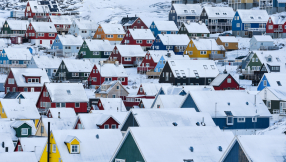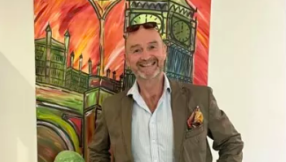Thousands of faithful Russian Orthodox Christians gathered in Moscow yesterday to venerate the relics of the revered Saint Nicholas – in a landmark moment for Orthodox-Catholic relations.
To Russian Orthodox Christians the saint – who lies behind much Christmas tradition – is a celebrated figure. His relics, believed by some to have miraculous powers, were sent to Russia in a historic departure from their home in Italy.
His remains travelled to Russia via plane on Sunday, and were installed for public display in Moscow's gold-domed Christ the Saviour Cathedral. The saint's relics make their otherwise permanent home in the Italian city of Bari, where they have resided for 930 years.
The relic-sharing was agreed during a momentous meeting between Russian Orthodox Patriarch Kirill and Roman Catholic Pope Francis last year. It was the first meeting of the respective denominations' leaders since the Great Schism of 1054 – when the Eastern and Western churches underwent a decisive split.
The name and legacy of the 4<sup>th century Greek bishop Saint Nicholas has great import in Russian Orthodoxy – many churches, and Russians, take his name.
The public display saw thousands lining up for hours for a chance to see the revered relics.
'I want to touch the relics, to ask for health for my children, for my relatives,' said one Ukrainian pilgrim named Natalia. 'I want health and peace on earth. Nothing else.'
Additional reporting by Reuters













